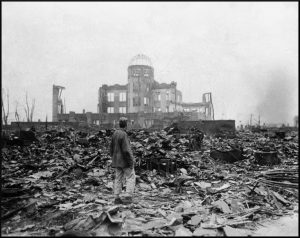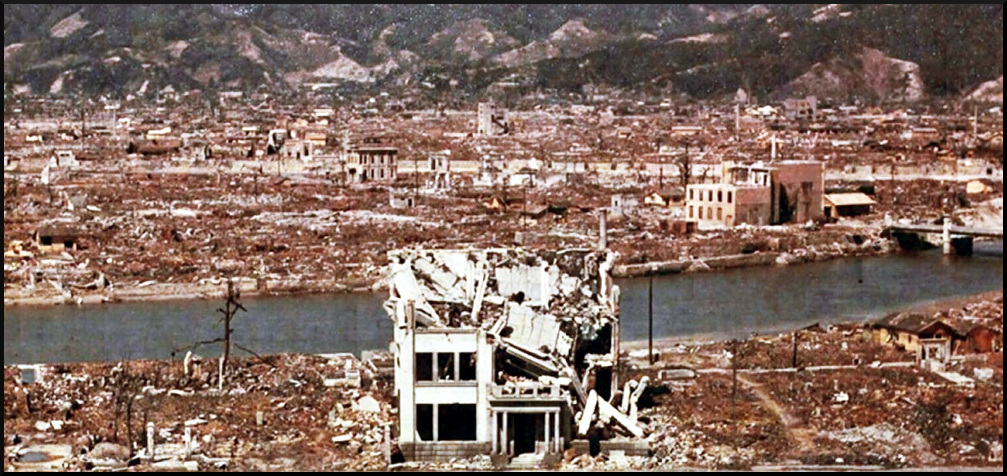by Socorro Gomez, published on the US Peace Council Website, August 5, 2020
This August 6 and 9, humanity rememorates one of the greatest tragedies in History, which was even more nefarious because it was caused by human action, that of US imperialism. The inauguration of nuclear weapons by the United States against the Japanese cities of Hiroshima and Nagasaki, towards the end of World War II, concluded the most horrendous episode of the 20th century, foretelling the terror and the threat of total annihilation that would befall the world, imposing immediate and protracted, unmeasurable suffering to Japanese civilians.
 Fatal victims of the Hiroshima and Nagasaki bombings, which had lasting consequences, amount to nearly 200,000. As is known, the power of the A & H bombs pulverized all that was hit and immediately killed 70,000 people in Hiroshima, where dozens of thousands more died until the end of that year, due to sustained injuries. The second, dropped on Nagasaki, killed about 35,000 to 40,000 people and wounded many more. Besides directly victimizing the Japanese people, the novel level of devastation provoked by the bombs terrified every nation, inaugurating a new era based on threats to the very survival of humankind and of the planet by US imperialism.
Fatal victims of the Hiroshima and Nagasaki bombings, which had lasting consequences, amount to nearly 200,000. As is known, the power of the A & H bombs pulverized all that was hit and immediately killed 70,000 people in Hiroshima, where dozens of thousands more died until the end of that year, due to sustained injuries. The second, dropped on Nagasaki, killed about 35,000 to 40,000 people and wounded many more. Besides directly victimizing the Japanese people, the novel level of devastation provoked by the bombs terrified every nation, inaugurating a new era based on threats to the very survival of humankind and of the planet by US imperialism.
Expressing solidarity with the Japanese people victim of this heinous crime, the World Peace Council has mobilized those opposing war and launched its first document and campaign, the Stockholm Appeal, in 1950, gathering hundreds of millions of signatures worldwide. It made clear that humankind repudiated the perspective of repetition of that tragedy and the consolidation of an international system based on intimidation, threats and terror as pillars of the United States’ power and military hegemony.
The peace-loving forces’ resistance and resilience, including that of our member the Japan Peace Committee, also inspired the strengthening of our unwavering opposition to the existence of nuclear weapons, whose abolition we demand also in commitment to the victims of the atomic bombings, as well as to life and the construction of an international community based on cooperation and mutual respect.
We once more express our sincere homage to the victims and survivors of the Hiroshima and Nagasaki bombings and our solidarity with the peace-loving forces dedicated to the struggle against nuclear weapons, which we joined as a founding impulse of our very World Peace Council. May this dreadful anniversary reinforce our determination and the international commitment with the abolition of these instruments of terror and destruction.
For Peace.
Socorro Gomez is the current President of the World Peace Council.
